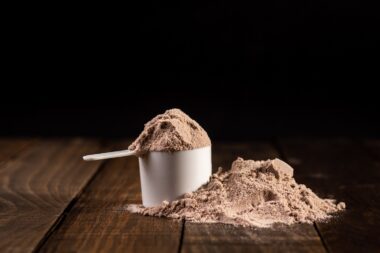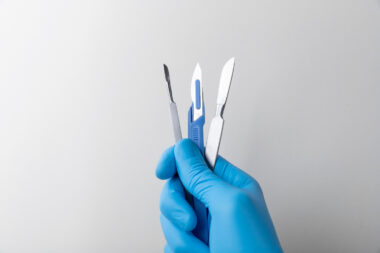In the pursuit of overall well-being, oral well-being stands as a cornerstone often overlooked. Beyond the facade of a smile lies a realm of crucial considerations that contribute to optimal oral well-being.
This comprehensive guide aims to delve into the intricacies of maintaining a healthy mouth, exploring aspects beyond the conventional brushing and flossing routine.
Understanding the Oral Microbiome
The oral microbiome, a multifaceted ecosystem comprising bacteria, viruses, and fungi, serves as a critical factor in maintaining optimal oral health. Beyond the apparent focus on teeth and gums, the delicate equilibrium within this microbiome plays a pivotal role in determining the body’s resilience against harmful pathogens that can lead to various oral well-being issues.
To promote a thriving oral microbiome, it is imperative to prioritize a diet rich in probiotics, commonly found in fermented foods and yogurt. Probiotics contribute to the cultivation of beneficial bacteria, enhancing the microbiome’s ability to fend off potential threats.
Concurrently, restricting the intake of sugary substances becomes crucial in preventing the proliferation of harmful bacteria, thus safeguarding the delicate balance essential for overall oral well-being.
Adopting these dietary practices not only supports the oral microbiome but also contributes to a holistic approach to dental well-being.
Mindful Nutrition for Strong Teeth and Gums
Nutrition is crucial to dental and overall health. Calcium-rich foods in a balanced diet strengthen teeth. Vitamin D aids calcium absorption, strengthening teeth.
Leafy greens and nuts give vitamins and minerals that protect gums from infections, promoting dental health overall.
Proper hydration also helps produce saliva, a natural defensive mechanism that cleans the mouth of dirt and dangerous germs, promoting dental health.
Thus, a conscientious and nutritionally aware approach helps build a strong foundation for dental health and general well-being.
The Art of Proper Brushing and Flossing Techniques
Beyond the routine act of brushing, the efficacy of the technique employed plays a crucial role in oral well-being. The American Dental Association recommends a soft-bristled toothbrush, as it effectively cleans teeth without causing undue damage to enamel or gums.
Flossing, often overlooked, is equally vital. It reaches areas between teeth that a toothbrush cannot access, preventing the accumulation of plaque and reducing the risk of gum disease.
The combination of proper brushing and flossing techniques is a simple yet powerful regimen that forms the bedrock of oral hygiene.
Holistic Approaches to Oral Care
Beyond conventional dental practices, holistic approaches offer supplementary benefits to oral well-being. Oil pulling, an ancient Ayurvedic practice, involves swishing oil (commonly coconut or sesame oil) in the mouth for 15-20 minutes.
This technique is believed to remove toxins and bacteria, promoting gum health and overall oral well-being. Similarly, incorporating herbal mouthwashes, containing antimicrobial properties, can complement traditional oral care routines.
Embracing these holistic approaches provides a comprehensive and synergistic approach to oral well-being.
The Impact of Stress on Oral Well-being
In the contemporary world, stress often causes bruxism, which may damage dental health. Unconscious teeth grinding, frequently caused by stress, may cause tooth deterioration and jaw discomfort.
Meditation and deep breathing techniques help manage stress and maintain dental health. These mindfulness practices promote calm and reduce stress, preventing bruxism and improving general health.
Maintaining a healthy and sustainable lifestyle requires acknowledging the complex relationship between mental and oral well-being.
Regular Dental Check-ups: A Preventive Imperative
Regular dental check-ups are essential to oral well-being prevention. These consultations need professional cleanings to remove stubborn plaque and tartar and discover any concerns.
Dentists can detect subtle indicators of decay, gum disease, and other oral diseases that others may miss. Consistent dental appointments avoid the need for more comprehensive and expensive procedures by addressing developing issues quickly.
Personalized oral well-being education during regular checkups equips people with the skills and information for at-home care. Thus, periodic dental exams are essential to lifelong oral well-being.
Conclusion
In the pursuit of optimal oral well-being, a holistic and multifaceted approach is paramount. Beyond the conventional practices of brushing and flossing, understanding the nuances of the oral microbiome, mindful nutrition, and holistic oral care techniques enrich the arsenal against dental issues.
Recognizing the impact of stress and incorporating preventive measures, such as regular dental check-ups, ensures a comprehensive strategy for long-term oral well-being.
By delving beyond the superficiality of a smile, one can truly embrace the vitality that optimal oral well-being contributes to overall physical and mental wellness.
Image by Pexels
This article is published by our independent team of health and wellness pundits that publish original and informative content to empower readers to take charge of their health and embark on a physically, mentally, and emotionally balanced lifestyle.





































